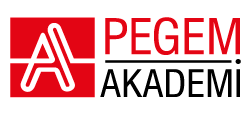— Prof. Dr. Dr. h.c. Ulrich Teichler
All over the world, higher education is expected (1) to foster understanding of scientific theories, methods and areas of knowledge, (2) to care for cultural enhancement and personality development, (3) to lay the foundation for future professional work, and (4) to enable students to call into question conventional wisdom, to think critically and to strive for innovation. In recent years, the third function is discussed most controversially. Views differ whether the increased proportion of higher education-trained persons are needed in a knowledge society or have led to questionable “over-education”. Moreover, the confusing term “employability” has gained popularity – used differently as call for more specialization, or more direct preparation for competences expected by employers, or more general competencies, or more “key skills”, etc. Irrespective of these differences – higher education is called upon to reflect – more strongly than customary in the past – the professional relevance of study programmes, teaching and learning. Graduate surveys indicate an enormous variety of employment and work situations according to disciplines, individual higher education institutions and graduates’ sets of competences. This underscores the value of graduate surveys for individual institutions and individual fields of study as well as the opportunities of higher education institutions to pursue specific profiles rather than imitating the most prestigious universities or the traditional “main stream” of the relationships between higher education and the world of work.

